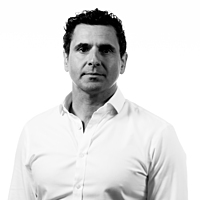Meet Liz: She’s curious, kind and bought Afterpay at 3 bucks
When I think of FOMO (Fear of Missing Out), my thoughts go directly to punters feverishly chasing Bitcoin, cannabis stocks or the next BNPL offering. For Liz, my third guest in Livewire’s Meet the Investor Series, the FOMO urge resulted in her snapping up a parcel of five- and ten-year bonds. Doesn’t sound too spicy, right! But that was back in the day when bonds were paying juicy yields. Liz held onto those bonds, and they ultimately did the heavy lifting for her by covering the cost of her post-graduate education.
Thirst for knowledge and a commitment to long-term investing are two of the recurring themes in this story. You’ll also get a glimpse of a truly kind and compassionate person. I loved hearing about the strategy that Liz has developed for neutralising the emotional side of investing. This strategy has enabled her to enjoy the elevator ride in Afterpay shares, from the basement to the penthouse.
Livewire Investor Profile
Name: Liz
Age: 49
Employment Status: Employed
Years Investing: 33 years
Investment goals: To test a hypothesis (done) and achieve financial security
Products used: Bonds, Equities and Listed Investment Companies
Biggest portfolio holding: Afterpay (ASX:APT)
.jpg)
Image: Liz and her dog Beau
How old are you and how long have you been investing?
I'm 49 and have been investing for more than 30 years, having started – in a roundabout way – when I was 16. I was basically copying my older brother, who had a school economics assignment on bonds. And, as an aside, I think this is one of the things that boys commonly get to do at school but girls don't. But anyway, on the back of this assignment he was doing, I thought, "Oh yeah, I'll put a bit of money into bonds.” I didn’t know anything about them, I just didn't want to get left behind from what Tony was doing.
At the time, these five- and 10-year bonds were yielding about 17% or 18%. So, in that sense, I was off to a good start. But I wasn't actively investing until I was probably in my mid-20s, which is when it really started to “click”.
Looking back, I was starting university not long after that, at the same time as the government changed the policy to HECS (Higher Education Contribution Scheme). My first year was HECS-free, but then I had to pay for the rest of my university qualifications. At the time, you got a 25% discount if you paid up-front. And because my bonds were maturing, I used that money to pay my fees.
I’ve got a few degrees, and I mostly came out of those with no university debt because of those bonds.
Now of course, not many 16-year-olds would start out investing in bonds – and that’s not surprising. But Millennials are jumping into stocks (that they don’t understand) and I think that's what's changed the market in the last 12 months. Which is fine, but only if they don’t need the money today. Because that’s my number one rule: make sure you don’t need the money that you're investing.
Tell me about your investing objective. What are you hoping to achieve?
My original objective, in my 20s, was to test this Marxist theory of social capital. Remember, I was now in my 20s so had actually started to engage my brain in investing, having first started out with no objective other than copying my brother. But by this time, I was doing a social science type of degree and we were learning about neoliberalism, Marx and Plato. They were the main theories that I was bouncing off at this point.
In a nutshell, my objective was to see if poor people – because I was very poor at the time – could become wealthy by working with a system that was essentially designed to exclude them.
That was my original objective. But that’s not so much my objective anymore, because I think I proved that hypothesis. My objective now is to be financially secure by the age of 55 and to retire early. At least partially – I don’t intend to fully retire at that age.
Can you tell me a little about what you do professionally?
I'm a social researcher in the area of social work and social policy. I was working professionally in this field for 20 years before getting into social research. And I was seeing families who were just constantly struggling to make ends meet. They had a lot of disadvantages and were excluded a lot from the kind of social systems that helped people to succeed in a capitalist system, particularly things like education.
Many of these people suffer from trauma in the form of child abuse and things like that. These created barriers to them succeeding in areas like education, and I was developing these ideas related to, "Why don't we teach poor people about the financial market?" Because it's not that hard to get involved and do things like actively invest if you can save a bit of money.
It’s something I still like to believe is possible: that by educating people about capitalism, the stock market and other investing options, they can be lifted out of poverty.
It worked for me. I had a lot of other things going in my favour, in particular I didn't have trauma that stopped me having a good education and I had a family with expectations that I would work and they sought for that to happen. But over the years, I’ve been fortunate to help some people dig their way out of poverty by learning about the stock market. It can happen.
Looking at your own investing, what products do you use to implement your strategy?
That's changed over time, too. At the moment, it’s mainly about equities. I invest directly in Australian equities and also actively engage with my industry super fund to ensure it’s investing in equities using expertise I don’t have. That's where my exposure to international markets and emerging industries comes from. My direct investing is just Australian stocks, because I don't have the time or the expertise to follow what's happening internationally. I leave that up to the experts in terms of my super. Along with bonds, I’ve also used managed funds, but I've had some bad experiences there, so I tend to stay away from them. I’ve also had some property investments too.
How would you describe your Australian shares strategy?
In terms of the investment style, I would probably consider myself a contrarian and I have a balanced portfolio across value and growth. But I also have some blue-chip as well so try to, I guess, manage risk as well as you can manage risk in equities that way.
I also reinvest the dividends and the profits back into my portfolio, so it's mostly grown of its own accord and compounded. A greater proportion of what's in there now would be a result of the “churn” of profits rather than me putting new money in.
What are your top five holdings today?
- Afterpay (ASX:APT)
- CSL Limited (ASX:CSL)
- Macquarie Group (ASX:MQG)
- Next DC (ASX:NXT)
- Whitefield (ASX:WHF)
My number one position is a bit of an accident, but it’s Afterpay (ASX:APT), which I bought in 2017 and I have sold some over the years, but I still hold it. The others are doing okay, but Afterpay is way out there.
Another of my top five is CSL Limited (ASX:CSL), which I bought more than 10 years ago.
Another one is Macquarie Group (ASX:MQG), which also I bought more than a decade ago and then Next DC (ASX:NXT), which I bought five years ago.
There’s also Whitefield (ASX:WHF), which might be weird to hear. It's quite an old, listed investment company that I’ve held for more than 30 years. My mother encouraged me to get into Whitefield really early on and I've still got them because mum said, "Never sell. You're not allowed to ever sell." And I've added to them over the years as well.
So. if you look at the top five, you can see that balance of blue-chip, value and growth that I was talking about
Some of those like APT and NXT, that's when I started to get a little bit riskier. No one was even talking about APT in 2017, and I bought them because of something I read on Livewire, someone saying, "We think this has got legs."
And on top of that, because my approach is that my portfolio is money that I don’t need, I can just hold the stocks, I’m not forced to sell. For example, I've bought and sold Macquarie at different times over the years. I bought some of the stock about three days before the global financial crisis crash; I paid about $79 a share. But then over the next few years, I bought in again, so I lowered my share price average. I bought in at $13 and then I bought in again at $29. And then I sold when it got to around $55. That’s what I do.
But I've also made some shockingly bad decisions. My worst investment was my first big loss, but it wasn't even that much money, really. It was a managed fund, a Banker’s Trust managed fund.
It was in the 1980s or 1990s, I was only around 18-years-old I think and the market was volatile. But it was a good lesson because it made me engage more with what was happening with my money, rather than just thinking, "Oh, they're an expert. I can just trust them to manage my money."
When that happened, it made me start to think, "No, I can do this better than them. They just lost all my money for me." That was a catalyst for me becoming more engaged.
When you have a losing position, what’s your process for dealing with it?
Patience. I patiently wait it out and if they tank, I'll buy more. I'll try to buy cheaply and reduce my share price average, and then as they start climbing again, I'll sell the expensive ones at a loss, but not the entire holding. It doesn’t always work, such as when companies go into administration and you lose your money, which happened a couple of times during the global financial crisis.
One example there is Babcock and Brown, I lost money there, but a lot of people did. And I think I'm sitting on some losing positions at the moment that I'll probably just sacrifice because I think they're “old paradigm” stocks.
Are there any lessons that you'd like to share with other Livewire readers?
Look forward and have no regrets. Whether I'm buying or selling, and at whatever price, I just have to remember, "You can't time the market." Sometimes you might kick yourself thinking, "Oh, I shouldn't have sold," or, "No, I shouldn't have bought yet.” But no, don't have any regrets about it. Just remember that whatever money you did make, you're better off than you were before. And if you lost money, it's a long game and you'll be able to make it back.
Thinking about that long game, the average share price at which I bought CSL Limited (ASX: CSL) is $70 (trading at around $250 as of midday 21 May). And Afterpay (ASX: APT) is about $3 (APT currently trades around $95) And for Macquarie Group (ASX: MQG), I bought a parcel at $79 pre GFC, and have subsequently bought more shares below $30 (now trading above $150; I bought Next DC (ASX: NXT) at $6 (now trading at $10.60). And Whitefield (ASX: WHF) I bought at $3.50 (the listed investment company currently trades at $5.79).
Investing aside, can you tell me about any other life ambition or plans for your future?
It ties in with my career and in wanting to at least partially retire early. I want to somehow influence big businesses – big philanthropic organisations, those with large social impact bonds or funds that are investing in social causes - to stop focusing on the big charities. It’s the smaller, locally based social welfare organisations that provide the really agile response to people's needs. But they're the ones that government won't fund because they're perhaps considered a bit too innovative or risky.
I've got the same philosophy towards investing that I have towards social programs. We need to find better ways to support the small social programs that are doing incredible stuff, but which no one will fund.
They can make a huge difference to the social capital and the wellbeing of people in a local community on $120,000 a year because they build their social networks and they tap into the volunteers and the generosity of people living in the area. And they can get a ten-fold financial return if we just invest a little bit of money into them.
Investing has made it possible for me to not have to struggle, and I've got more freedom because of that. But I see so many people, particularly women, who have to physically earn every dollar.
I know there’s the Marxist theory side of things about people earning money for you, which brings up a lot of ethical issues, but it's about balance and trying to do that ethically.
Enjoying Livewire's Meet the Investor Series?
If you enjoyed hearing about Liz's experience please give this wire a 'like', and if you know someone that might enjoy the article why not send them the link.


5 stocks mentioned


